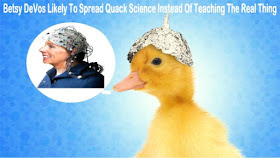Debate heats up over teaching climate change in US schools

COLUMBUS, Ohio (AP) — The struggle over what American students learn about global warming is heating up as conservative lawmakers, climate change doubters and others attempt to push rejected or debunked theories into the classroom.
An overwhelming majority of climate scientists say manmade emissions drive global warming, but there’s no such consensus among educators over how climate change and its causes should be taught.
Several U.S. states recently considered measures allowing or requiring teachers to present alternatives to widely accepted viewpoints on such topics. For example, a stalled proposal in Iowa would have required teaching “opposing points of view” on topics such as global warming, and proposed science standards in Idaho would have students taught that human impact is driving global warming and that natural factors also contribute.
The debate is arriving on teachers’ doorsteps nationwide, as thousands are being mailed the book “Why Scientists Disagree about Global Warming” from a Chicago-area advocacy group called The Heartland Institute that challenges the assertion that there is consensus about a human-caused climate crisis. In a follow-up statement, the institute’s president said science instructors should “keep an open mind” and shouldn’t teach “dogma pushed by some environmental activist groups.”
The National Center for Science Education made rebuttal flyers explaining that Heartland relies on debunked theories. The National Science Teachers Association dismissed the mailing as propaganda and urged educators to recycle the books.
Meanwhile, President Donald Trump’s decision to withdraw the United States from an international agreement aimed at curbing global warming is reinforcing some teachers’ sense of urgency about discussing humans’ role in accelerating climate change.
“This isn’t just something we’re talking about because it’s going to be on the test,” said Jim Reding, a high school teacher in Granville, Ohio, who said he wants his students to think critically and have civil, reasoned conversations on the topic. “This is something that could have an impact on my life or my children’s life going forward.”
An NCSE survey released last year of 1,500 public middle- and high-school science teachers found about three-quarters taught something about climate change during the 2014-15 school year. About a quarter give equal time to “perspectives that raise doubt about the scientific consensus,” the survey found.
Approaches to teaching climate science depend largely on state science standards and decisions by districts and instructors, because the federal government doesn’t dictate curriculum, said Glenn Branch, deputy director of the science education center. Many schools teach climate change in some way, but teachers varyDebate heats up over teaching climate change in US schools:


